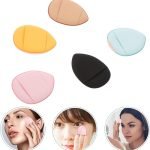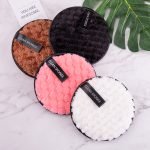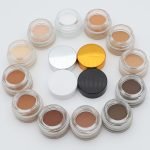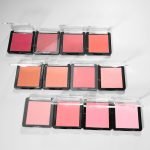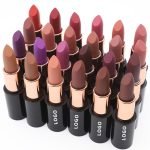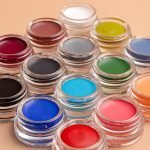Since 2020, the global makeup market revenue has been increasing, and Statistica estimates that US annual revenue will reach USD 131 million by 2026. As more cosmetics entrepreneurs create online stores, beauty trends come up, and more people look for beauty brands that suit their needs, makeup businesses will continue to thrive.
1.Do adequate research
To start a private label cosmetics business, you need to do a lot of groundwork. You need to research the market to understand what you are getting yourself into. You need to research your target market to understand what they like and don’t like. For example, if you wish to create eyeshadow palette, you may research the different shades for different skin tones and the challenges customers face when selecting the right shade. You also need to know the best ingredients, as well as ingredients that are approved or banned by the FDA, especially if you are starting a private label cosmetics USA business. As a selling point, you can also research current trends in the cosmetics industry. For example, a lot of millennials and Gen Z clients are really into products that are sustainable, environmentally friendly, and that are cruelty-free. Ensure you follow these trends and highlight them when marketing your products.
2.Define your niche
Diving blindly into the makeup industry without having identified a niche is akin to planning to fail. Thus, start by identifying the particular makeup you’re interested in.
Do you have a passion for it? Is it something you’re knowledgeable about in the wide range of cosmetics? Will you cash in on a craze or reinvent an existing one?
Determine whether your cosmetics company intends to fill a market makeup product gap or to reach an overlooked group of potential customers. Irrespective of what you settle on, ensuring a market demand is crucial.
Again it could be something that you love using. Do you use eyeshadow, or is the foundation your must-have makeup? Are you a fan of eyeshadow or lipstick? And so on. Creating a cosmetics company that you’re enthusiastic about can be the first step in identifying the niche.
Here are some possible products for your cosmetics:
Mascara.
Blush.
Eyeliner/Eye Shadow.
False Eyelashes
Foundation.
Lipstick/ Lip gloss, among other private label products
Additionally, identify the people who will be most interested in your makeup or skincare products. Or specify a problem you want to solve for makeup users.
For example, you may focus on organic, all natural makeup for normal to sensitive skin or high-performance cruelty free makeup for sports people. You could go for a lipstick with a wide range of colors.
No one would like to see their products not selling. So, by identifying your niche and a catchy business name, you can ensure that your products are tailored to your target audience’s needs, making it easier to sell the actual product.
3.Financial planning
Before starting the manufacturing process of a private label cosmetics product, it is crucial to calculate the cost of the whole endeavor and source financing. When it comes to financial planning, there is no one-size-fits-all as it depends on several factors. You’ll spend the most money when ordering samples and for the initial production run. However, other costs may include advertising, website creation, marketing, packaging, and creating a brand identity.
Cash flow may be one of your biggest hurdles for your new business. In the beginning, most of your working capital may be tied up to inventory. The best solution is to start small and not invest too much money in inventory until you are sure your products will sell. If you are unsure about demand, partner with a private label cosmetics supplier with low minimum order quantities.
4.Find a private label cosmetics supplier
Unless you have an entire lab team and Research and Development department at your disposal, a private label cosmetics company is the easiest way to get quality and safe products with minimal effort. The purpose of a private label cosmetics supplier is to help you with the complicated and stressful process of developing a formula and manufacturing the products. These companies are perfect when starting when you only need smaller quantities. The advantage of using a private label cosmetics supplier is that it lowers your production costs and allows you to concentrate on perfecting your brand as you can be sure the product is of good quality. Another advantage of using established private label cosmetics suppliers is that they are familiar with regulations and they’ll ensure your products pass all safety tests.
5.Design brand identity and packaging
Create brand identity and packaging design that is suitable for your brand image. This is a key component of your brand image and should be given full consideration.
6.Establish sales channels
Determine sales channels, including online and offline sales. Consider establishing partnerships with retailers, wholesalers, online marketplaces, etc.
7.Determine brand positioning
Maintain product quality and brand image stability and improvement, continuously launch new products, and improve existing products to gain consumers’ trust and loyalty.








